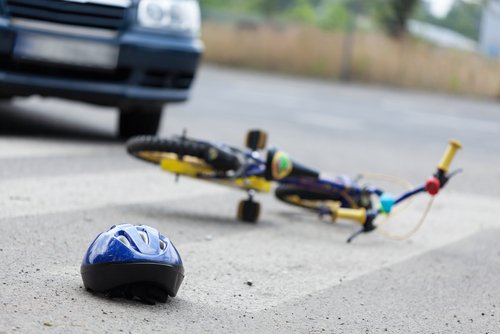Belgium, (Brussels Morning Newspaper) More than 6,000 children up to the age of 14 died between 2011 and 2020 in road collisions in the European Union, it has been revealed.
Above the age of 14, 20% of child road deaths during this period were moped riders, the vast majority being boys.
Child road mortality rate in Romania is ten times higher than in Norway, Cyprus and Sweden.
The European Transport Safety Council (ETSC), a Brussels-based independent non-profit making organisation, is now calling for specific targets to protect child road users.
The findings of the report, “Reducing child deaths on European roads”, published on Monday, are timely as the European Union is set to review rules on driving licences later this year.
Among its 40 recommendations to national governments and the EU, ETSC is calling for “safe cycling and walking routes” to schools. Just seven countries in Europe reported setting compulsory lower speed limits around schools, according to the new study.
ETSC says roads around child care facilities and in urban areas with lots of cyclists and pedestrians should be designed for 30 km/h and “low volume” traffic. The speed limit on these roads, it says, should be 30km/h “even where these design criteria are not yet achieved” and ETSC is calling on the EU to make this a formal recommendation.
Despite major advances in car safety in recent years, almost half of child road deaths are of children travelling in cars. Only limited data are available on the correct use of child seats in cars across the EU, but studies have shown that incorrect usage remains a significant problem.
From 1 September 2024, only child seats meeting a new UN ‘R129’ standard can be sold on the EU market. These seats are safer by design and can only be fitted with an ISOFIX system, reducing the risks of incorrect installation. The provision of ISOFIX anchorage points has been compulsory on new cars in the EU since 2014.
ETSC says safer rear-facing seats should be made mandatory for as long as is practicable, preferably until the child is four years old. Child seats should also be subject to reduced rates of VAT, it says.
ETSC is also calling for mandatory theoretical and practical training, as well as a practical test, to obtain an AM (moped) driving licence. It also warns that 16 European countries allow children to ride a moped at 14 or 15 years old, despite a recommended EU minimum age of 16.
ETSC says the minimum EU recommended age for solo car driving of 16 should not be lowered. The study authors also found vast differences in the safety of children between countries with the child road mortality rate in Romania ten times higher than in Norway, Cyprus and Sweden. Where child road mortality is relatively low, road mortality for the rest of the population also tends to be relatively low and vice versa. Where this is not the case, ETSC says this could be partly because children in those countries tend to be driven to school and other activities rather than being allowed to travel there alone by bike or on foot.
ETSC executive direct Antonio Avenoso said, “Losing a child in a road collision is a tragedy no family should have to experience. While zero child road deaths most years is becoming a reality in some parts of Europe, there is a long way to go.
“Many of the safety gains of recent years have come through safer cars, but keeping children safe by enclosing them in metal cages is a pyrrhic victory. If we want healthy, active children to grow up as healthy active adults, we need to think differently.”
“Making cities safe for children starts with simple things such as lower speeds and school streets. But if we are serious about reducing the hundreds of deaths of children that tragically occur every year, we also need to redesign our urban spaces to keep children separate from fast-moving vehicles and give them space to play and move around.”




